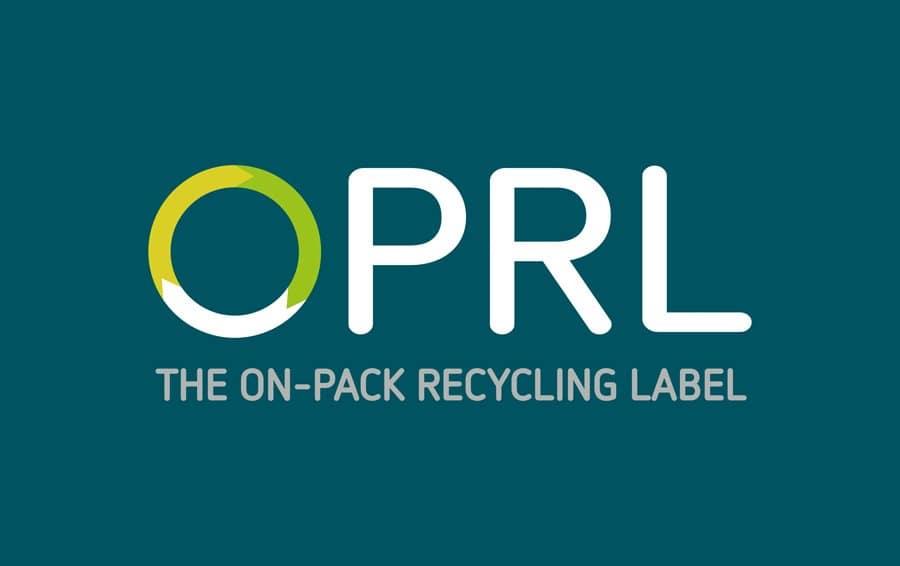Marking World Refill Day, 16 June 2021, OPRL is calling on its 650 members to be loud and proud about labelling refillable packaging to support consumers in making responsible consumption choices. With many reporting post-covid pro-environmental behaviours such as avoiding single use plastic bottles (45% of respondents) and taking more care to use reusable shopping bags (68%) there is growing consumer action to find reuse options.
OPRL’s research into 18 pro-environmental behaviours adopted by British consumers placed reusing bags first, increasing recycling at home second, taking litter home fifth and avoiding single use plastic bottles sixth in ranking. Over a third of consumers reported checking packaging for recyclability information before purchasing and one quarter checking for wider eco-friendly claims on packaging before purchasing. (5,167 GB consumers in Feb/Mar 2021).
This growing public demand lends credence to City to Sea estimates that converting 20% of plastic packaging into reuse models offers a £7bn (USD10bn) business opportunity benefitting consumers and representing a crucial element in the quest to eliminate plastic waste and pollution. With brands and retailers increasingly offering a range of refill models it is crucial that consumers understand how to refill reusable packaging with their favourite products and maximise reuse and resource efficiency.
The three principal refill systems – using lightweight-packaged refills at home, bulk refill facilities in store or via a return system where the brand or retailer takes back packaging for cleaning and refilling – are reflected in the new labels.
Jane Bevis, Chair of OPRL, said: “Consumers repeatedly tell us they want to do the right thing but need help from business and government in doing so. With so many consumers expressing interest in refillables, the major shift needed to make refill systems successful is within our grasp. But this has to be underpinned by clear and consistent labelling which consumers can trust and readily understand.”
“Our commitments to help deliver Sustainable Development Goal (SDG) 12 Responsible Consumption and Production, and SDG11 Sustainable Cities and Communities mean we’re also committed to driving the shift to refill and reuse in packaging.”
Margaret Bates, Executive Director of OPRL added: “To qualify for the OPRL Refill label the packaging must be designed for reuse a minimum of ten times, with refill systems available to 75% of the UK population for a minimum of 3 years. Only then will the real environmental gains through reuse be realised, unlike reusable carrier bags where heavier gauges and displacement to other products such as bin liners and nappy bags may have actually increased plastics consumption.”
“Prior to Covid there were clear signs consumers were increasingly choosing refill options when consuming on-the-go. Now there’s a growing range of refill options for personal care, cleaning and laundry, and everyday groceries basics. Communicating clearly to consumers how to engage with each of these systems will be crucial to their success.”
Jo Morley, Head of Campaigns at City to Sea commented: “World Refill Day is designed to get the issue of single-use plastic back on the agenda and make it easier for people to access reuse and refill options. Whilst we still have a long way to go when it comes to mainstreaming reuse in supermarkets and with big brands, it’s great to see the launch of these new labels which make it easier for consumers to understand what they can refill and will hopefully start to change the way we view and value packaging. Ultimately, we need to turn off the tap when it comes to single-use plastic and it’s a positive step in the right direction.”
At the launch of the new labels in April 2021, Libby Peake, Head of Resource Policy at the Green Alliance, commented: “The conversation about single use plastic is now rightly expanding to consider the wider implications of how we use materials and our throwaway society. As companies and their customers look to reduce the impact of packaging, it’s clear that refillables have a major role to play. But these systems can only deliver the environmental benefits they promise if they are used as intended, which is why it’s great news that OPRL has created these labels. These should make it much clearer to people what they need to do to help support a more resource efficient packaging system.”






